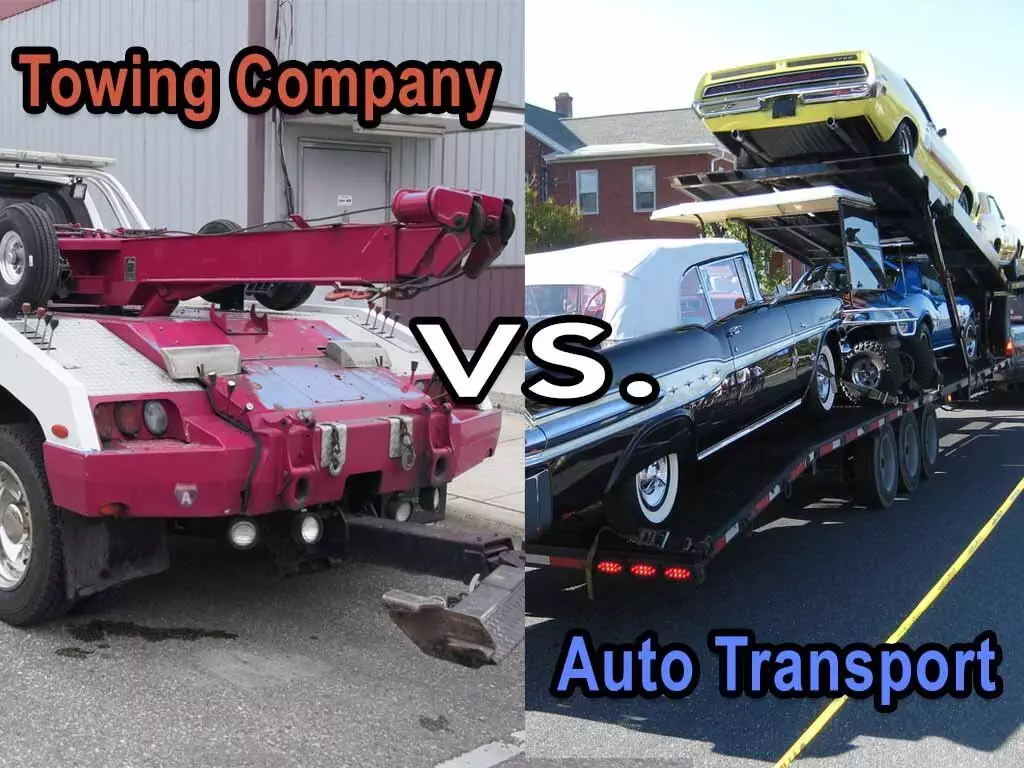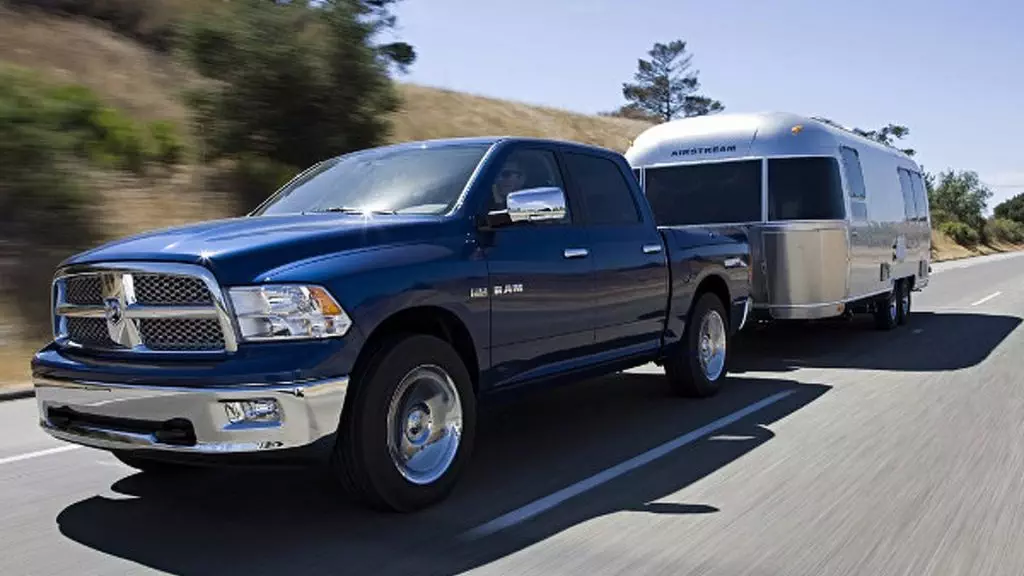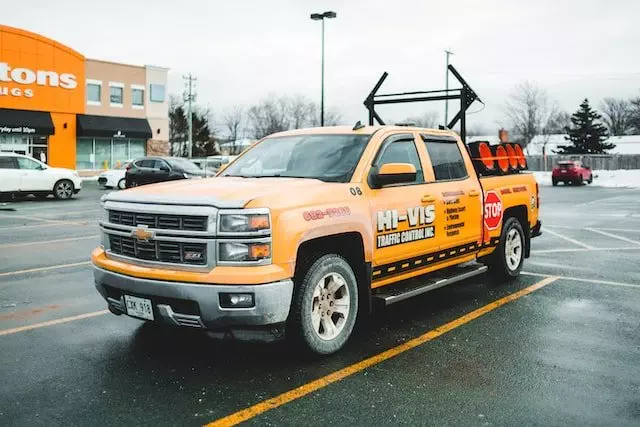Have you ever wondered if there’s a difference between towing and hauling? We certainly did, so we dug into the topic to find out more. And let us tell you, we were surprised by what we discovered! In this article, we’re going to explore the nuances between towing and hauling, and explain why understanding the distinction is important. So sit back and relax, because by the end, you’ll have a clear understanding of these two terms and how they differ.
When it comes to towing, most people think of it as pulling a vehicle or object behind another vehicle. And while that’s certainly a part of it, towing actually encompasses much more. It refers to the act of moving something, typically with the help of a vehicle or machinery, by attaching it to a tow bar, hitch, or other similar apparatus. On the other hand, hauling generally involves transporting something in a vehicle specifically designed for carrying heavy loads, such as a truck or trailer. So, while both towing and hauling involve moving something from one place to another, the methods and equipment used differ.
Understanding the difference between towing and hauling is important because it can affect the safety and legality of various tasks. For example, when towing a trailer or another vehicle, you need to make sure you have the appropriate equipment and follow local regulations. On the other hand, hauling may require specific permits and precautions depending on the weight and dimensions of the load. By knowing the distinction, you can ensure that you’re engaging in the correct practice and complying with all necessary rules and regulations. So, let’s dive deeper into the world of towing and hauling to gain a more comprehensive understanding of these terms and the responsibilities that come with them.
Definition of Towing and Hauling
What is Towing?
Towing refers to the act of pulling or moving a vehicle or object behind another vehicle using a tow bar, tow rope, or other similar equipment. This is typically done when a vehicle is unable to move on its own, either due to mechanical failure or being involved in an accident. Towing is commonly used to transport vehicles that have broken down or to remove illegally parked cars.
What is Hauling?
Hauling, on the other hand, involves transporting cargo or goods from one location to another using a trailer, truck, or other similar transportation equipment. Hauling is primarily used for commercial purposes, such as delivering products to customers, transporting construction materials, or moving heavy equipment. Unlike towing, hauling focuses on the transportation of goods rather than the movement of vehicles.
Characteristics of Towing and Hauling
Types of Vehicles Used
towing generally requires a specialized towing vehicle or a vehicle equipped with a towing hitch. This can include trucks, SUVs, or even motorcycles, depending on the size and weight of the vehicle being towed. On the other hand, hauling often involves heavy-duty trucks or trailers specifically designed for transporting various types of cargo, such as flatbeds for carrying large objects or refrigerated trucks for transporting perishable goods.
Types of Loads Carried
When it comes to towing, the primary load being carried is usually a non-functional vehicle. This can range from small cars to larger trucks or RVs. In contrast, hauling can involve transporting a wide range of loads, including raw materials, construction materials, livestock, or even specialized cargo containers.
Methods of Attachment
Towing typically involves attaching a tow bar, tow dolly, or tow rope to the front or rear of the vehicle being towed. This allows the towing vehicle to exert force and provide the necessary momentum for the towed vehicle. Hauling, on the other hand, relies on various methods of attachment depending on the cargo being transported. This can include using straps, chains, or specific loading mechanisms to secure the load onto the truck or trailer.

This image is property of www.jsausa.com.
Differences in Purpose
Towing for Emergencies
Towing is often associated with emergency situations, such as assisting broken-down vehicles or removing vehicles involved in accidents. Towing services are commonly called upon when a vehicle is immobilized and needs to be transported to a repair facility or a safe location. Towing services are an essential resource for drivers in need of immediate assistance and ensure the safety and efficient removal of non-functional vehicles from roadways.
Hauling for Transportation
Hauling, on the other hand, is primarily focused on transportation. It serves as a crucial link in the supply chain by enabling the movement of goods from one location to another. Hauling services are employed by businesses to fulfill customer orders, deliver goods to retail stores, or transport materials to construction sites. The primary purpose of hauling is to efficiently and safely transport cargo while ensuring the timely arrival of goods.
Equipment and Accessories Needed
Towing Equipment
To effectively tow a vehicle, specific equipment is necessary. This includes a tow bar or tow hitch, which attaches the towing vehicle to the vehicle being towed. Additional equipment may include safety chains, brake controllers, and towing mirrors, especially when towing larger vehicles or trailers. Towing equipment should be properly maintained and utilized to ensure the safety of both the towing and towed vehicles.
Hauling Equipment
Hauling often requires specialized equipment depending on the type of cargo being transported. This can include cargo straps, chains, or ratchet tie-downs to secure the load, as well as trailers or truck beds specifically designed for hauling. Effective loading ramps and lift gates may also be necessary to safely load and unload heavy or bulky items. Hauling equipment should be checked regularly to ensure it is in good working condition and meets safety regulations.

This image is property of nxautotransport.com.
Regulations and Requirements
Towing Regulations
Towing regulations vary depending on the jurisdiction and the specific circumstances. It is important to familiarize oneself with local regulations and requirements to ensure compliance. Such regulations may include guidelines on maximum towing weight, permissible towing speed, and the need for additional safety features like trailer brakes or warning signals. Towing companies and vehicle owners should also be aware of insurance requirements and any necessary permits needed for towing operations.
Hauling Regulations
Similar to towing, hauling is subject to specific regulations and requirements. These regulations often encompass vehicle weight limits, cargo securement guidelines, and the use of proper safety devices. The transportation of hazardous materials, oversized loads, or livestock may have further specific regulations to ensure safety. Hauling companies must adhere to these regulations to maintain the integrity of their operations and ensure the safety of both their drivers and the general public.
Safety Considerations
Towing Safety Tips
When involved in towing, it is essential to prioritize safety. This includes ensuring that the towing vehicle is properly equipped and capable of handling the load being towed. Key safety tips include checking the vehicle’s weight limits, using the correct towing equipment, and securing the towed vehicle properly. Additionally, maintaining increased awareness while driving, especially when towing a sizable load, is crucial to prevent accidents and ensure the safety of all road users.
Hauling Safety Tips
Hauling also requires careful consideration of safety measures to protect both the driver and the cargo being transported. This includes ensuring the load is appropriately secured using the appropriate equipment. Regular maintenance and inspection of hauling equipment is essential to prevent equipment failure or malfunctions that could potentially result in accidents. Additionally, drivers should be aware of the added weight and potential changes in vehicle handling and braking when hauling a load.

This image is property of cdn.motor1.com.
Challenges and Risks
Challenges of Towing
Towing can present various challenges, particularly when dealing with larger or heavier vehicles. The weight and size of the towed vehicle may affect the handling and stability of the towing vehicle, requiring additional skill and caution from the driver. Maneuvering in tight spaces, such as parking lots or narrow streets, can also be challenging when towing. Additionally, inclement weather conditions can further complicate towing operations, posing additional risks to both the towed vehicle and other road users.
Risks of Hauling
Hauling carries its own set of risks, primarily associated with the transportation of goods and the potential impact on road safety. The weight and dimensions of the load being transported can affect the handling and stability of the hauling vehicle, especially during turns or sudden braking. The potential for cargo shifting or becoming unsecured poses risks to both the driver and other vehicles on the road. Hauling operations must account for these risks by properly securing the load and adhering to safety regulations.
Training and Certification
Towing Training
Given the challenges and risks involved in towing, specialized training is often required for those involved in providing towing services. This training may cover topics such as vehicle recovery techniques, proper attachment and towing procedures, and understanding the laws and regulations associated with towing operations. Towing operators should be adequately trained to ensure they are knowledgeable in handling various towing scenarios and are capable of responding to emergencies safely.
Hauling Certification
Similarly, hauling operations may require specific certifications and training to ensure the safety and efficiency of transporting goods. These certifications often include training on cargo securement, load distribution, and vehicle handling while hauling. It is crucial for drivers and haulers to undergo certification programs that educate them on proper techniques and equip them with the necessary skills to navigate the unique challenges of hauling operations.

This image is property of towingless.com.
Costs and Budgeting
Towing Costs
The cost of towing services can vary depending on factors such as the distance of the tow, the size and weight of the vehicle being towed, and the specific services required. Emergency towing services or long-distance tows will generally incur higher costs compared to short-distance or non-emergency tows. It is advisable to inquire about towing rates before needing the services to ensure budgeting for potential towing expenses.
Hauling Budgeting
Hauling costs typically depend on the nature of the cargo being transported, the distance of the haul, and any additional services required, such as loading or unloading assistance. Specific equipment needs, fuel costs, and any applicable permits or toll fees should be factored into the hauling budget. Proper budgeting and planning can help businesses optimize their hauling operations while ensuring profitability and customer satisfaction.
Conclusion
In summary, towing and hauling are distinct activities with different purposes and considerations. Towing is primarily focused on moving non-functional vehicles in emergency or non-emergency situations. Hauling, on the other hand, involves the transportation of goods for commercial purposes. While both activities require specialized equipment, adherence to regulations, and considerations for safety, understanding the unique characteristics and requirements of each is essential in properly utilizing these services. By recognizing the differences between towing and hauling, individuals and businesses can ensure the safe and efficient movement of vehicles and cargo, respectively.

This image is property of towingless.com.